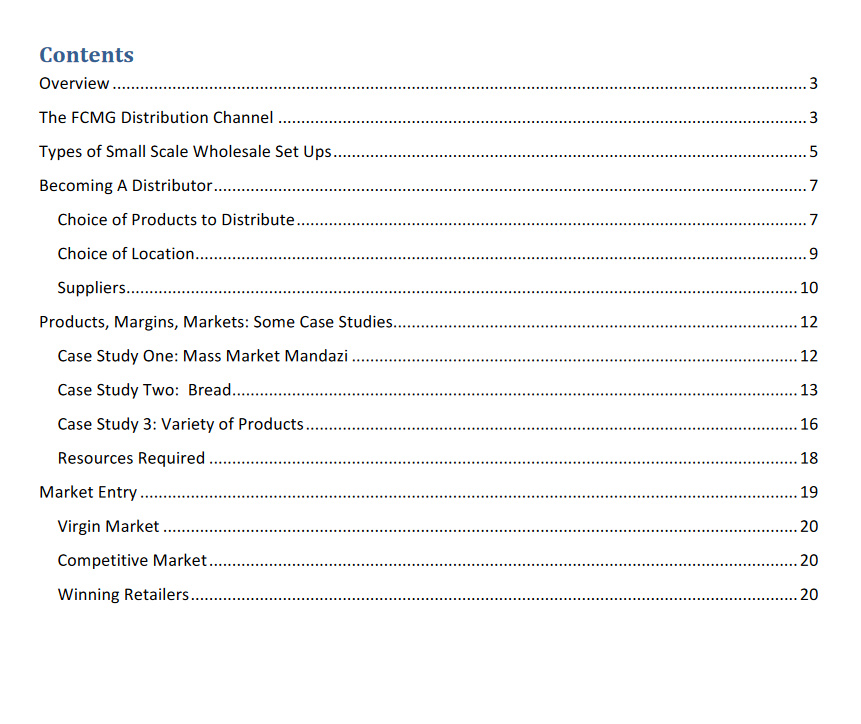FMCG Small Scale Distribution Business Plan
FMCG Small Scale Distribution Business Plan

FMCG Small Scale Distribution Business Plan Overview
This FMCG Small Scale Distribution Business Plan looks at small scale distribution of fast moving consumer goods (FMCG). FMCG are a very wide variety in terms of product categories; say bread, or brands say Festive. As much as this FMCG Small Scale Distribution Business Plan touches on a number of products due to the variety involved and local market dynamics it’s not possible to cover the specifics of each and every of the hundreds of items. Hence consider this as a quick business plan which explains how to get into distribution at a small scale and what to expect.
Small scale distribution in this case means you are a sort of wholesaler selling to retailers but operating at a lower level either informally or formally. The former means that you are operating without premises, licenses or a mode of transport; a little jua kali you could say. In the latter case you are more ‘formally ‘ set up say with a premises, licenses , a mode of transport and such .
As you will see at a small scale level opportunities exist for both of these set ups. If low on capital you can start with an informal set up. Same if you are testing the market. You will find in this field a significant number who move from informal to formal operations, while there are also distributors who remain informal despite their financial success because of advantages that will become clear in FMCG Small Scale Distribution Business Plan.
The FCMG Distribution Channel
Before we position the small scale wholesaler lies in the supply chain it’s important to understand how FMCG companies get their products to the market. Company A manufactures (or imports) product B a FMCG. The challenge then is how to get the product to the hands of consumers.
There are several paths that can be followed and the exact depends on the size of the company and the type of product.
Some companies will sell directly to retailers or even consumers; however this is very limiting for FMCG because of the thousands of retailers and the logistics required to reach them. Manufacturers are also without the skill, time and logistics to distribute their products directly to retailers. Distributor understands the local logistics.
Thus many FMCG companies prefer to use some sort of middle men. The middle men go by different names such as distributors, wholesalers or even brokers.
Having settled on middlemen a company then looks at how many will be involved in the chain before the product gets to the consumer. Considerations include what the middlemen cost the company , their efficiency, whether they interfere with the product , how to keep them motivated so as not to be tempted to prioritize the competitor’s products. The product too has to remain competitively priced even as it gets to the consumers.
Download FMCG Small Scale Distribution Business Plan / guide here